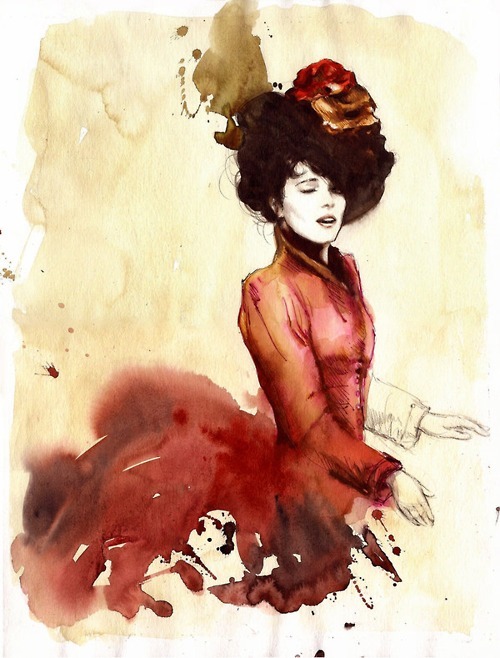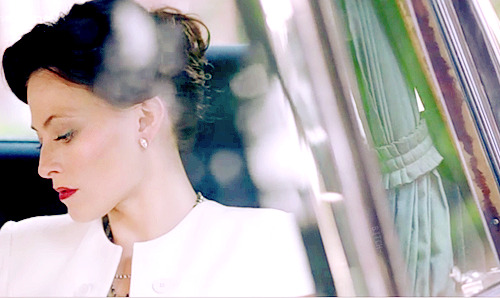SPOILER WARNING: This post discusses the plot of Elementary episodes 22 (The Woman) and 23 (Heroine).
The fourth Great Sherlock Holmes Debate was this Saturday, and I was fortunate enough to participate yet again. Thanks so much to the organisers at MX Publishing for gathering together Holmesian experts from all around the world, it was fantastic to hear everyone's presentations and thoughts on various adaptations of our favourite detective.
The fourth Great Sherlock Holmes Debate was this Saturday, and I was fortunate enough to participate yet again. Thanks so much to the organisers at MX Publishing for gathering together Holmesian experts from all around the world, it was fantastic to hear everyone's presentations and thoughts on various adaptations of our favourite detective.
The recording of the entire debate should be up online in a
couple of weeks once everything is edited, so keep an eye out for that. There
was a great presentation on the Warner Bros. Sherlock Holmes films by Mary Platt and
an amazing contribution by Bonnie MacBird who
told us all about BBC's Sherlock. Luke Kuhns talked
about Holmes pastiches, and we also had the Holmesian legend Roger Johnson,
author of The Sherlock Holmes Miscellany,
deliver a presentation about Lenfilm's Sherlock Holmes adaptations starring Vasily
Livanov and Vitaly Solomin as Russian Holmes and Watson. This is one of my
personal favourites, so I was really glad to hear Roger talk about them. If you
are so inclined, you can watch them all online here.
The video quality isn't ideal, but it has English subtitles.
 |
| Natalie Dormer as Irene Adler in Elementary |
I have discussed the treatment of Irene Adler in a previous post,
where I talked about her updated character as it was shown to us in the episode
A Scandal in Belgravia in BBC's Sherlock. In this, her characterisation
went from a point of strength to utter weakness, as the narrative displaced her
from her strong, empowered queer identity and depowered her to suit itself and
the character progression of its (presumably heterosexual) male characters. In
essence, she had at least one foot in the refrigerator. (Here is a very good summation of the women in refrigerators trope.)
In Elementary, however, Irene Adler starts out in the deep, cold depths of the fridge, and then fights her way out. At first
she is merely a mention, the beautiful dead girlfriend type who probably
starred in most of Edgar Allan Poe's dreams and fantasies, the ethereal artist
whose demise at the hands of the second most dangerous man in London drove the
world's greatest detective to lose all semblance of control over his drug use.
By now mostly everyone is familiar with the quote – to him, she was the Woman, the
late Irene Adler. But is she? Adler
is indeed, as Elementary shows us,
one of dubious and questionable memory. She is not late at all: in fact, it turns out that she is Moriarty, Holmes's arch nemesis and
the cause of most of his misfortune to date. The Woman and the Napoleon of Crime are thereby fused into one person. Which one of them beat Holmes, then? Canon tells us that they both did, at least for a time, and the same thing happens on Elementary. It's not done with the same drama that we saw in The Reichenbach Fall or read in The Final Problem, but then again the finale of the first season of Elementary wasn't meant as his plunge down a waterfall, simply a bump in the road, albeit a very significant one for Holmes.
Adler's transformation teaches Holmes that there is no such thing as the Woman, because there is no such thing as a perfect representative of the female gender. There is no girl in the fridge, there isn't a virgin or whore because they are all people, and this is Elementary's greatest strength: people. Moriarty's characterisation isn't perfect and lacks some depth that other characters have, but this is to be expected since we have only seen her in one episode, while all the other characters got at least 23. Here's to hoping this won't be the end of Moriarty and she'll return in the second season.
Of course this isn't the only reason why I think that Elementary is a feminist show: there is Ms Hudson, a transgender character played by a transgender actress (Candis Cayne), who is treated with respect and not subjected to sexual violence, which is a rare occurrence when it comes to portrayals of transgender characters in mainstream media. However, perhaps the best example to support my argument here would be Joan Watson.
Some critics expressed certain misgivings about the fact that an actress was cast in the role of Watson rather than going for the traditional choice of a male lead, but I have already talked about this in a previous post. Suffice to say, none of their worries came true. Elementary did not take Holmes and Watson's friendship for granted, it built it from the ground up. Their relationship is one based on trust and respect, and the show goes to great lengths to make sure the audience sees how that trust and respect is gained. Joan was shown as an equal to Sherlock rather than just his sounding board: she listens to him and learns from him, but he also learns from her.
One of my main complaints about Sherlock is the fact that Watson is not someone who is independent to Holmes: he is second fiddle, an accessory, someone intelligent enough for Holmes to bounce his ideas off, only this and nothing more. He sometimes makes a heroic effort of biting back, but there is never the sense of an equal footing. He is always running to catch up. Joan Watson starts out as an employee with her own hopes, ambitions and demons, and she turns from an employee into a partner and a friend, a detective and a heroine. She is shown to be intelligent, hard-working, caring and entirely independent: she bludgeons criminals and breaks into cars, and she solves cases on her own. She helps Sherlock be a better person, as he himself tells her. Watson is not afraid to call anyone out on their nonsense, least of all Sherlock. When he suggest that she is in a bad mood because she's on her period and saying that he's worked out her schedule, she comments: "Couching it as a scientific observation totally negates the misogyny."
There's a reason the second part of the Elementary finale is called Heroine. It's not just Sherlock, it is also Watson who wins in the end, and her victory is not just over Moriarty, but also over misogyny. In a scene, Moriarty and Watson meet in a crowed restaurant, and Moriarty says this: "As far as I can determine, you're a sort of... mascot. You were his sober companion, a professional angel to perch on his shoulder, fend off his many demons, but now... now I don't know what you are. Do you want to sleep with him?" To this, Watson replies with: "I thought you told him that you were just like him. That you saw the same things that he did." Moriarty succumbs to internalised misogyny and she underestimates Joan Watson just as some of the previously mentioned critics of the show underestimated Joan Watson, and Moriarty fails because of that.
Elementary punishes misogynists and rewards those who fight misogyny, and in this current media climate of racism and sexism, where characters are whitewashed (spoilers for Star Trek: Into Darkness at the link) and female characters perpetually get naked for the enjoyment of the audience and nothing more, seeing someone like Joan Watson and Ms Hudson is a refreshing and welcome change, and I for one eagerly await the second season of Elementary.
 |
| Candis Cayne and Jonny Lee Miller as Ms Hudson and Sherlock Holmes in Elementary |
Adler's transformation teaches Holmes that there is no such thing as the Woman, because there is no such thing as a perfect representative of the female gender. There is no girl in the fridge, there isn't a virgin or whore because they are all people, and this is Elementary's greatest strength: people. Moriarty's characterisation isn't perfect and lacks some depth that other characters have, but this is to be expected since we have only seen her in one episode, while all the other characters got at least 23. Here's to hoping this won't be the end of Moriarty and she'll return in the second season.
Of course this isn't the only reason why I think that Elementary is a feminist show: there is Ms Hudson, a transgender character played by a transgender actress (Candis Cayne), who is treated with respect and not subjected to sexual violence, which is a rare occurrence when it comes to portrayals of transgender characters in mainstream media. However, perhaps the best example to support my argument here would be Joan Watson.
 |
| Lucy Liu as Joan Watson in Elementary |
One of my main complaints about Sherlock is the fact that Watson is not someone who is independent to Holmes: he is second fiddle, an accessory, someone intelligent enough for Holmes to bounce his ideas off, only this and nothing more. He sometimes makes a heroic effort of biting back, but there is never the sense of an equal footing. He is always running to catch up. Joan Watson starts out as an employee with her own hopes, ambitions and demons, and she turns from an employee into a partner and a friend, a detective and a heroine. She is shown to be intelligent, hard-working, caring and entirely independent: she bludgeons criminals and breaks into cars, and she solves cases on her own. She helps Sherlock be a better person, as he himself tells her. Watson is not afraid to call anyone out on their nonsense, least of all Sherlock. When he suggest that she is in a bad mood because she's on her period and saying that he's worked out her schedule, she comments: "Couching it as a scientific observation totally negates the misogyny."
There's a reason the second part of the Elementary finale is called Heroine. It's not just Sherlock, it is also Watson who wins in the end, and her victory is not just over Moriarty, but also over misogyny. In a scene, Moriarty and Watson meet in a crowed restaurant, and Moriarty says this: "As far as I can determine, you're a sort of... mascot. You were his sober companion, a professional angel to perch on his shoulder, fend off his many demons, but now... now I don't know what you are. Do you want to sleep with him?" To this, Watson replies with: "I thought you told him that you were just like him. That you saw the same things that he did." Moriarty succumbs to internalised misogyny and she underestimates Joan Watson just as some of the previously mentioned critics of the show underestimated Joan Watson, and Moriarty fails because of that.
Elementary punishes misogynists and rewards those who fight misogyny, and in this current media climate of racism and sexism, where characters are whitewashed (spoilers for Star Trek: Into Darkness at the link) and female characters perpetually get naked for the enjoyment of the audience and nothing more, seeing someone like Joan Watson and Ms Hudson is a refreshing and welcome change, and I for one eagerly await the second season of Elementary.

